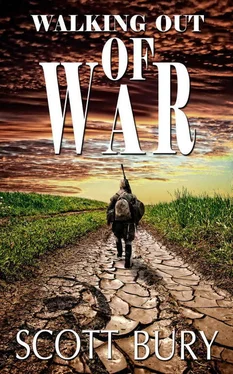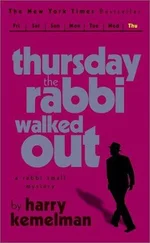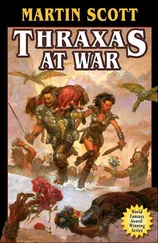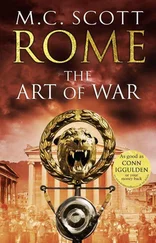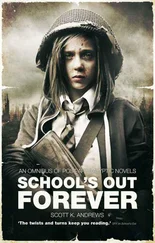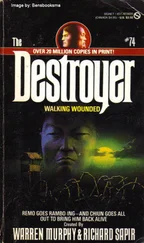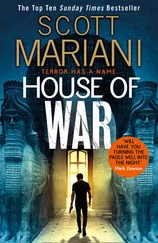His attention went back outside as the train rolled into the rail yard, a broad expanse of sidings and switches. Behind them, the ruins of Leningrad, a city that was once the envy of Europe. Smoke rose above the city, and Maurice wondered whether it was a factory or a fire.
“This is it. The last stop before Finland,” said Mykhailo Boyko, another Ukrainian conscript in Maurice’s odalenye, or company. He was a short, chubby, soft young man, 21 years old, with fair hair that always looked greasy. “Those damn Finns are tough. Do you know that they killed five Russians for every one of theirs they lost?”
“Shut up,” said Taras Kuchnir, a slender eighteen-year-old from Kalush. “I don’t need to hear you tell us how unbeatable the Finns are.”
“It’s just that—” Mykhailo began.
“I know. Now shut the fuck up,” Taras said.
Maurice leaned toward the others, and they leaned closer to hear him. “Keep your heads down, boys. Don’t be heroes. Shoot when it makes a difference. We can all survive this.”
The train slowed. The boys looked at each other and straightened, checking over their shoulders for commissars. Instead, a senior sergeant entered from the next car and blew a whistle. “Ready to disembark. Get your weapons and gear ready.” He reached the end of the car and went through the little door to the next one.
The train stopped at the platform and the men picked up their packs, rifles and company gear, then climbed down to a sea of men, horses, wagons hauling field guns and tanks, trucks honking, non-commissioned officers shouting and NKVD military police blowing whistles.
“This way, men,” called Maurice’s sergeant, a tough, dedicated Communist Russian named Nikolai Nikolaev. Close to six feet, he was taller than Maurice, and fit. When he rolled up his sleeves, his long arms reminded Maurice of heavy rope. “We get a meal and a rest and then we get on another train for the Finnish front.”
They climbed down to the platform and joined the rest of their company, commanded by Captain Ilya Baranov and Commissar Alex Sorkin. Baranov was a barrel-chested young man, no more than 25 years old, with dark brown hair and eyes, and white scars across his cheeks and on the backs of his hands. Sorkin was thin, compact, his uniform with its red patches perfectly clean and pressed. Like every officer, he carried a sidearm in a leather holster on his hip, and Maurice suspected a copy of the Communist Manifesto in his pocket.
Try as they might, Baranov and Sorkin could not move the company through the press of the Red Army. From one side, another regiment moved across their path. On the other side, porters loaded guns and equipment onto horse-drawn wagons. Men pressed shoulders, squeezing past Maurice and Mykhailo.
Maurice looked around the train station. The main station building had been nearly wiped out by German bombs. There was no glass in the tall, proud windows, no roof except for planks put up temporarily. Exposed beams made the roundhouse and outbuildings look like skeletons of ancient monsters. Beyond the press of men and vehicles, Maurice could see piles of rubble pushed to the sides of the streets. At one corner, old men and women held ragged coats closed at their throats and watched the army disembarking.
After standing in place for a half-hour, the company was finally able to move with the rest of the regiment. They shuffled down the platform, squeezing between another regiment on one side and a burned-out building on the other to emerge into a square. The whole city looks grey, like ash, Maurice thought. The bright sunlight only accentuated the burn marks and the craters in the streets.
The regiment trooped into a huge, open building that looked like a massive barn. Long tables ran the length of it, and men went to the far end to line up for a meal.
Maurice sat down across from Mykhailo. Taras was beside him, and Young Olesh—not the youngest man in the company, but with a remarkable baby face with full cheeks and not a trace of facial hair—on the other side. Borys Kozak sat across the table from him. He was a thin man in his mid-twenties, like Maurice, but from a village far from the front lines, hundreds of kilometres east of Kyiv.
“I love this American ham,” Maurice said. Beside a slice of ham taken from a can was a scoop of buckwheat porridge, called kasha, and a spoonful of canned peas. All supplied by the British and Americans. What a difference from the beginning of the war .
Mykhailo could not stop talking about the Finns. “Do you know we lost five times as many men in 1939 as the Finns did?” he said again. “The USSR sent everything they had into Karelia: tanks, men, planes, ships, everything. The Finns gave up a few kilometres of territory. And now, they’re supplied by the Germans. German guns, tanks, planes, everything.” His voice dropped and he leaned closer to the others. “I heard they have ghost soldiers that can go through snow and ice to kill Russians.”
“Those were just men in white uniforms and skis,” Maurice scoffed. “Don’t believe every old wives’ tale you hear.”
“They’re still very tough fighters. And the snow is going to be very deep. That’s going to be a killer for us just as it was for the Germans in 1942,” said Young Olesh.
“It’s September,” said Serhiy Koval, who had come with Olesh from western Ukraine. The two had been inseparable in training camp and ever since. “Maybe there won’t be snow in Finland yet.”
“There won’t be any more snow in southern Finland than there is here in Leningrad,” Maurice said. He took a big bite of his ham and let the others argue about how tough and unbeatable the Finns were. When he swallowed, he looked at the others around him, then down the table to Sergeant Nikolaev. He was talking with the lieutenant, an earnest, blond Russian named Vasilyev. Good. He won’t hear me.
“The Red Army today isn’t the same as the Red Army in 1941,” he said. He knew he had to be careful not to give the men any idea that he had been in the Red Army in 1941. “Now, we have American food, British guns and cannons, American and British made tanks, American trucks, American cigarettes.” He took out a cigarette and lit it. “In 1941, the USSR had next to nothing—no food, bad uniforms. Boots wore off the soldiers’ feet as they were retreating.” He lifted his foot onto the bench to show off his new, American-made boot with leather foot and canvas upper. “Look at that. Not as good as what the officers have, but much better than they used to be.”
“How do you know all this?” Young Olesh asked.
Maurice hid the alarm the question made him feel. “The thing is, when you’re fighting, fear is your worst enemy. Panic makes you forget your training, it makes you make mistakes. And that is what gets you killed.”
“Have you ever been in a war before, Maurice?” Young Olesh asked, and Maurice felt like hitting him.
“No, of course not. I’m a new draftee as much as you are.”
“Really? You seem to know a lot about fighting. And you’re the fastest in the odalenye at breaking down your rifle.”
Maurice forced a smile he hoped looked real. “I just pay attention to the training.”
Young Olesh did not look convinced. Worse, neither did Mykhailo. If I can’t convince a dummy like Myko, I’m in trouble.
An hour later, they marched back to the train station. It was a different platform than the one where they had arrived, but it was still just as crowded and chaotic. A major and a staff sergeant stood on a wagon, shouting orders and pointing regiments one way and another.
A train waited on the track, doors open. Men unloaded heavy crates while two generals argued, yelling at each other on the platform in front of it. Maurice could not hear what they were saying above the din of the platform.
Читать дальше
